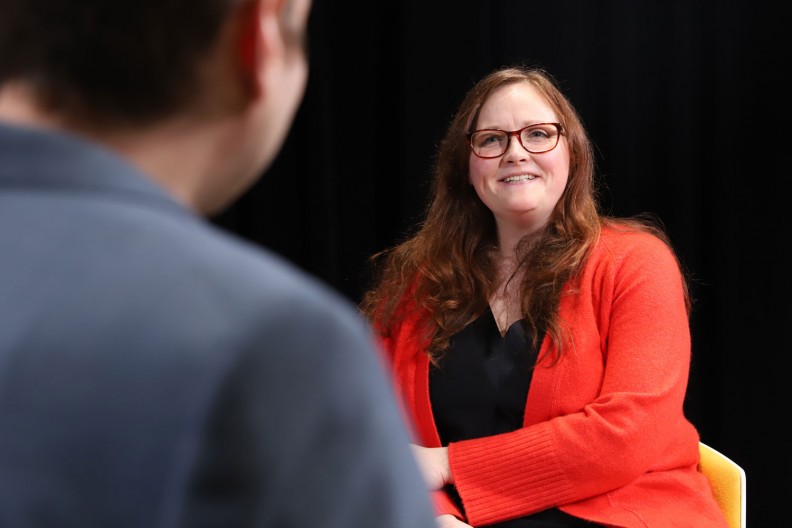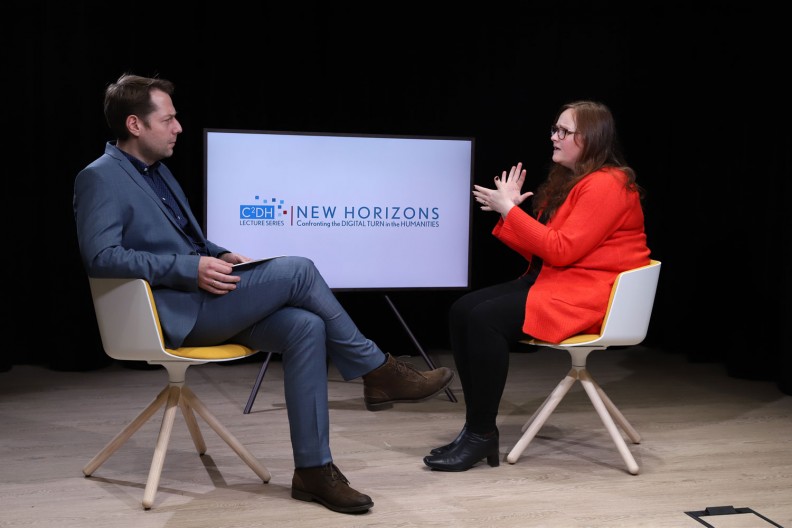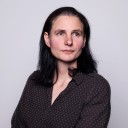Fr Roberto Busa S.J. is considered by many as being (one of) the founding fathers of the Digital Humanities. Thus, he has often been presented as a lone scholar whose work marked a sharp break with the past. Yet Busa worked with a team of up to 65 people. In recent years, I’ve extensively researched the female keypunch operators who made up a significant portion of Busa’s team, and who also made a significant contribution to the day to day running of the Index Thomisticus project. In this lecture Julianne Nyhan outlines her findings about the lived experiences and contributions of the Index Thomisticus’ female keypunch operators and reflects on what their omission from many accounts of the history of digital humanities says about the ways knowledge was defined at the dawn of digital humanities and who was deemed eligible to make that knowledge. She also points to some new research questions that she has recently identified, about the origins of Busa’s interest in statistical approaches to language and the referencing system that was developed for the Index Thomisticus. She will draw these new findings and new questions together by noting the emphasis in many histories of digital humanities on identifying the ‘new’, to the omission of the ‘old’, and argue that there is much to be gained from a better interfolding of such concerns in scholarship about the history of digital humanities.
Recording of the conference
Interview
In this interview led by Marten Düring, Julianne Nyhan talks about the beginning of her career and how she became acquainted with digital humanities. She then outlines some of her major ongoing projects and states that it was her interest in oral history that triggered her interest for the history of digital humanities. She comments the image of “lone scholar” often attributed to Roberto Busa which doesn’t give credit to the (mostly female) team behind his work. She then reflects on the transmission of knowledge within the field of digital humanities and points out some continuities and discontinuities she noticed over the decades within DH. She concludes the interview with a reflection on the collaborative nature of the digital humanities.
Biography
Julianne Nyhan is associate Professor of Digital Information Studies in the Department of Information Studies, UCL, where she leads the Digital Humanities MA/MSc programme. Nyhan is also Deputy Director of the UCL Centre for Digital Humanities (https://www.ucl.ac.uk/dh) and on the Leadership group of the UCL Centre for Critical Heritage (http://www.ucl.ac.uk/critical-heritage-studies). Recent publications include (with Marco Passarotti) One Origin of Digital Humanities: Fr Roberto Busa S.J. in his own words Springer 2019 & (with Andrew Flinn) Computation and the Humanities: towards an Oral History of Digital Humanities Springer 2016 (https://www.springer.com/gb/book/9783319201696). She is co-I or PI on the following research projects: a Leverhulme-funded collaboration with the British Museum on the manuscript catalogues of Sir Hans Sloane (https://tinyurl.com/y7zvrthm); a Transatlantic Partnership for Social Sciences and Humanities 2016 Digging Into Data Challenge, Oceanic Exchanges (http://oceanicexchanges.org/); and a Marie Curie action 'Critical Heritage Studies and the Future of Europe' (http://cheurope-project.eu/). She tweets @juliannenyhan and blogs at https://archelogos.hypotheses.org/.









